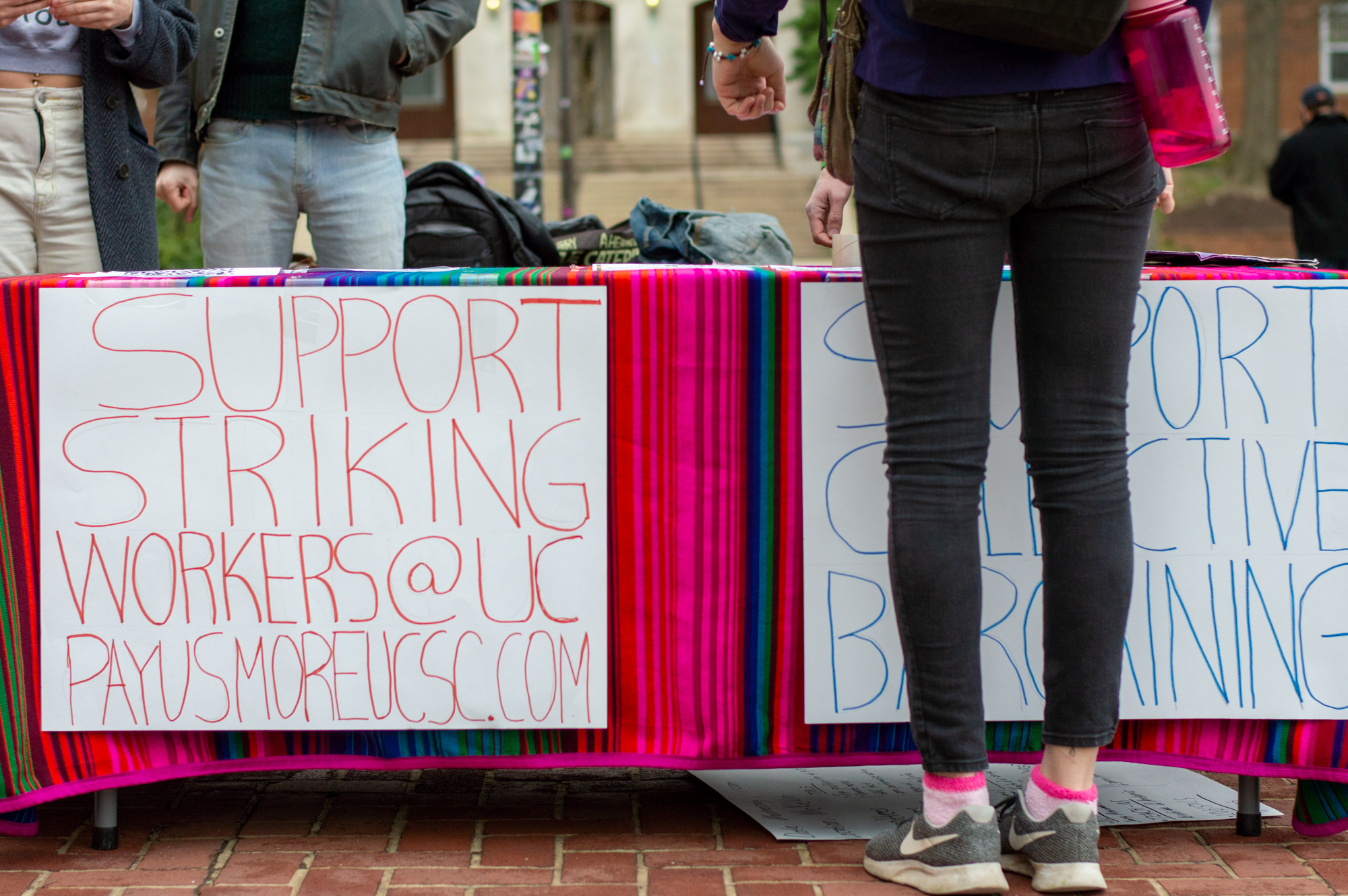Views expressed in opinion columns are the author’s own.
In September, I wrote about how the University of Maryland’s refusal to renegotiate their contract with campus workers during the rise of COVID-19 left one of the most vital parts of the university apparatus out to dry with no options or answers. That same dismissive treatment has been extended toward the university’s graduate students, particularly those with children.
Graduate students already carry massive burdens within their departments — they often develop, teach and grade undergraduate courses on their own and simultaneously pursue their own education. Many are also trying to get their research published, all while receiving less than $30,000 a year.
And the COVID-19 pandemic has only made these issues more glaring. Combine the burnout, anxiety and depression that can accompany graduate education with pregnancy complications, multiple children and constant school reopenings and closings, and the university’s most recent display of ignorance feels even more frustrating.
This university does not have a universal or accessible parental accommodation policy for graduate students with children, my colleague Khushboo Rathore reported in a Diamondback article last week. These students, instead, have been forced to negotiate personal protocols and accommodations with their advisers — a particularly difficult task if they haven’t been able to develop a close relationship. And even if they find a solution, the accommodation will be short-lived. Since 2012, the university has gone with a simple policy that guarantees graduate students six weeks of “reasonable and appropriate” parental accommodations.
Six weeks of guaranteed leave is painfully insufficient. As doctoral student Erin Sorenson stated, “I found out I was pregnant, and immediately I started thinking, ‘How is this gonna fit into everything? What happens if there’s complications? What happens if my son was born early and had to be in the NICU for three months? What if something happens and my son is sick?’” And administrators have no real answers for these critical questions.
In regard to academic expectations, teaching responsibilities and other specifics, the policy is lacking entirely. When music graduate student and teaching assistant Elizabeth Massey sought accommodation information after the birth of her first child, she got different information from different departments, and was told to become a grader — something she wasn’t even eligible for.
The university insists this ambiguity is intentional. “These policies are vague for a reason,” said Scott Roberts, the graduate school’s assistant dean. “With so many differences between departments and schools in the school, there’s no way to encompass every possible situation.”
While it’s certainly true that accommodation protocol is broad and circumstantial, graduate students with children have very specific needs, and going forward with virtually no standard accommodation policy hurts more than helps. With all the work they’re responsible for, graduate students need to be supported in ways that go beyond empty platitudes.
The university’s lack of action on solving pretty obvious policy issues makes their own severely underpaid workforce even more vulnerable to exploitation. An inconsistent and unclear accommodation process makes it difficult for graduate student parents to even know what their rights are to begin with.
In Rathore’s article, Massey mentioned one of the main reasons she found out how to navigate the process was because she had the help of her brother, an attorney. The entire affair puts student parents in unnecessarily difficult positions, and as Massey said, “You shouldn’t have to have a brother who’s a lawyer to help you figure out this situation.”
Solutions are needed now. First and foremost, any change in accommodation protocol needs to be standardized regardless of department. There’s no reason a student should be forced to choose between caring for their child or possibly losing funding due to departmental discrepancies; they deserve an easy and consistent process. Furthermore, any new accommodation protocol must prioritize the agency of graduate student parents above all.
Balancing studying, teaching and parenting during a pandemic is a truly ridiculous task — and any individual undergoing it should be able to do so on their terms. While past attempts at unionization have been denied in the state legislature, collective bargaining rights would be the most democratic way for graduate students to communicate their needs to administrators. While I’m glad the GSG is playing an active role in the situation, a graduate student union would be able to hold the university more accountable.
The university has been extremely lackadaisical in responding to the immediate needs of those whose labor they benefit the most from. They ignored the American Federation of State, County and Municipal Employees Council for months while workers asked for extra masks and air conditioning. Now they’re leaving graduate student parents to just “figure it out” at a time when very little makes sense. If the university truly valued these people and the work they do, they would prioritize clarity and allow control over policies that directly impact their livelihoods.
Malcolm Ferguson is a senior English and government and politics major. He can be reached at mferguso@terpmail.umd.edu.



